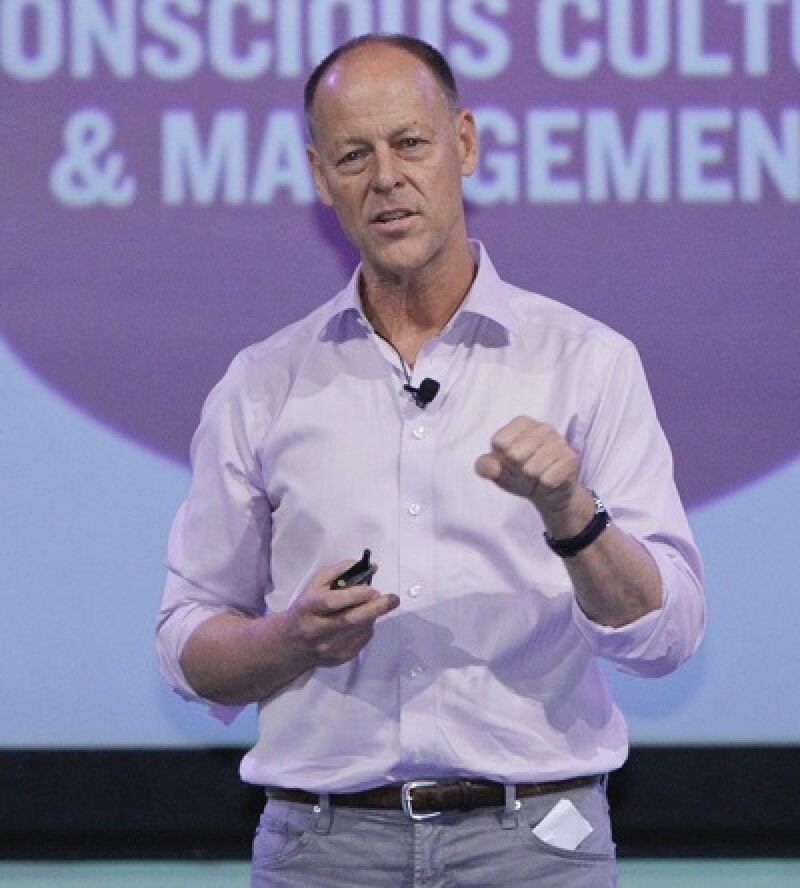
Burke then offered a local example of good brand management. San Diego rock band Rocket from the Crypt had a policy of allowing fans with tattoos of the band’s logo to come into its concerts free of charge. He stressed that INTA too had a very strong brand. “But I’m not saying that getting an INTA tattoo will get you in for free!” he clarified.
INTA CEO Etienne Sanz de Acedo and President J. Scott Evans then gave addresses. Evans underlined that trademarks have long served as the tools companies use to identify their brands.
“But, over the years the concept of brands has expanded to include all sorts of emotional and social attributes, and with it so too has the role of trademarks expanded,” he said. “I believe this to be a fundamental shift for the trademark industry and one that has forever altered the way we work.
“When we work with trademarks today, it’s important for us to consider all these associations that go along with the brand such as customer loyalty, and concern about our environment, our health, and our communities.”
Brand ambassadors
Evans said that companies that succeed in the Digital Age are those that take a holistic approach to their brands and endeavor to meet the needs of today’s Internet-savvy, socially-conscious consumer.
Evans noted that the idea of “brand ambassadors” is personal to him because he had to redefine himself. He revealed that before he became a lawyer he was a theater actor, and played a clip of him singing on stage. He went one better than that by closing his address in song to rapturous applause.
Walter Robb, Co-CEO of Whole Foods gave the keynote address, and provided his company’s thinking about the power of trademarks and IP.
“It is just so fundamental to free enterprise, to capital markets functioning,” he said. “It’s a basic core thing, and it’s a way to reward value and innovation. We have as a company over 36 years really benefited from the work you are doing individually and that you are doing as an Association. We understand the power of trademarks and intellectual property—believe me we have leaned on it.
“At the same time I want to say to you that we understand the power of brands but at our company we think a little differently about it. We think about it really around this idea of a mission or purpose. We started out to bring healthier food into the world. We don’t really ever talk about brand, we don’t use that word. We talk about company, and what we are here to do. It’s only lately we’ve begun to talk about that word at all.”
Robb said the company’s team members represent the heart and soul of its brand. He explained that Whole Foods’ philosophy is one of conscious capitalism, adding that the core values of this are: purpose and core values; stakeholder integration; conscious culture and management; and conscious leadership.










